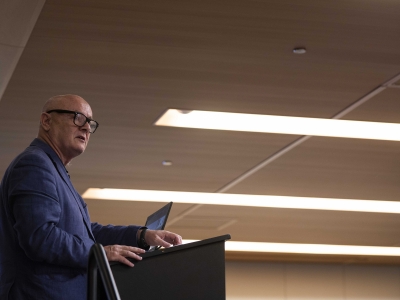Carleton Centre Maximizing Research
By Dan Rubinstein
Photos by Chris Roussakis
More than 1.25 billion people live in India — one-sixth of the world’s population. It is a country in the midst of enormous social, economic and technological change.
To help manage this transition, India’s Ministry of Urban Development has launched a multibillion-dollar Smart Cities initiative, with the goal of providing 100 cities with important infrastructure and services, such as an adequate supply of clean water, robust digital connectivity and efficient public transportation.
Banu Örmeci, a professor in Carleton’s Department of Civil and Environmental Engineering and the Canada Research Chair in Wastewater Treatment Engineering, is an expert in small-scale wastewater treatment systems in developing counties and remote communities.
Örmeci is already active overseas, chairing the International Water Association’s sludge management group.
Her work could help Smart Cities address the water supply and sanitation needs of dozens of rapidly growing cities, but India can be a difficult landscape to navigate for foreign researchers and companies.
Enter Carleton’s Canada-India Centre for Excellence in Science, Technology, Trade and Policy, which is headquartered in the River Building. Örmeci is working with the centre to help bring new and innovative water and wastewater treatment technologies to India. This could entail deploying a technology that already exists or developing a new low-cost, low-energy water or wastewater treatment method.
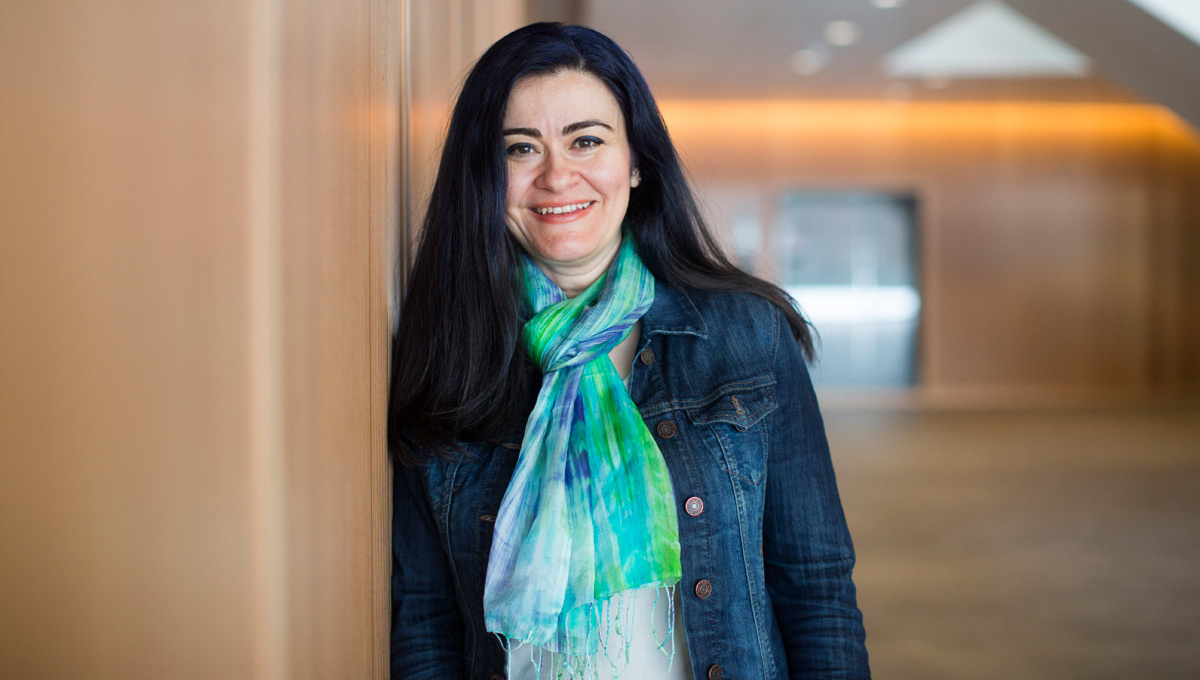
“This new collaboration with the Canada-India Centre is a natural extension of the work that I have been doing,” she says. “I see a great opportunity. The centre has a lot of contacts in India and can bring together the right stakeholders.
“Bringing together the right people is the crucial first step. Afterwards, it’s easier to find funding, identify site-specific projects where my research can be applied, and get involved in projects on the ground.”
The mandate of the five-year-old Canada-India Centre is to help build trade partnerships as well as scientific and cultural links between India and Canada, where 1.2 million Indo-Canadians comprise the second largest non-European ethnic group after Chinese-Canadians.
Harry Sharma, who became the centre’s manager in November 2015, believes there are tremendous opportunities for Canadian businesses and researchers like Örmeci, and not only because of the scale of India’s expanding and largely untapped market.
“Today’s India is young and aspirational — the majority of the population is under the age of 30,” says Sharma, who previously worked as the manager of strategic policy at CANARIE, a federal government-supported non-profit that designs and delivers digital infrastructure.
“India is a very complex and diverse country. Canadian policy-makers, academics and businesses need to better understand how this huge percentage of the world’s population thinks, lives and behaves so that we can form a true long-term sustainable partnership.”
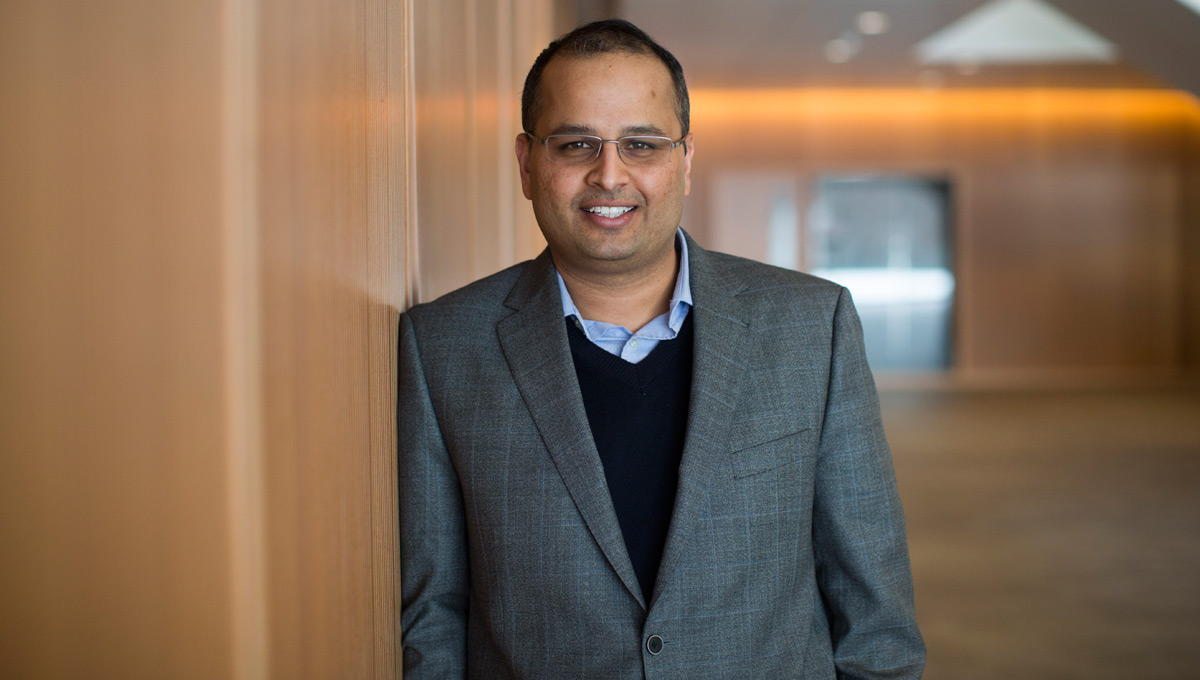
“The centre is not just opening up possibilities for Canada,” affirms Pauline Rankin, Carleton’s associate vice-president (Research and International).
“It’s also a place for meaningful exchange and dialogue around social, economic and political issues. There’s a lot that Canada can learn from India. And even though the centre has stressed scientific, technological, trade and policy issues, learning about Indian culture is an important part of what we do as well.”
Although India produces about 20 percent of the carbon emissions of the United States, for example, its economy is expected to grow by eight to 10 per cent over the next few years (compared to two per cent in the U.S). With economic growth comes carbon emissions. So understanding how people in India consume and adapt to new technologies is important from a global environmental perspective, as well as an opportunity for Canada’s clean tech and energy industries, among others.
“India has not yet experienced the type of growth that other large countries have seen,” says Sharma, who was born in India and is fluent in Hindi, English and French. “Canada is poised to become a key partner, and our centre is unique because it is the only place focused on doing policy research exploring the main challenges impeding this partnership.”
Despite the vast cultural differences and geographical distance between Canada and India, the two countries already have a bilateral scientific and technological co-operation agreement and are working on free trade and foreign investment protection deals.
“India is a huge priority of the Government of Canada,” says Sharma, noting that the mandate letter for Minister of International Trade Chrystia Freeland called for the development of a strategy to promote trade and investment with emerging markets, especially India and China.
The federal government isn’t the only public body seeking deeper links with India. In late January, Carleton’s Vice-President (Research and International), Nimal Rajapakse, joined a delegation led by Ontario Premier Kathleen Wynne that visited four Indian cities to meet with national and regional government officials, as well as leaders from the country’s post-secondary education sector.
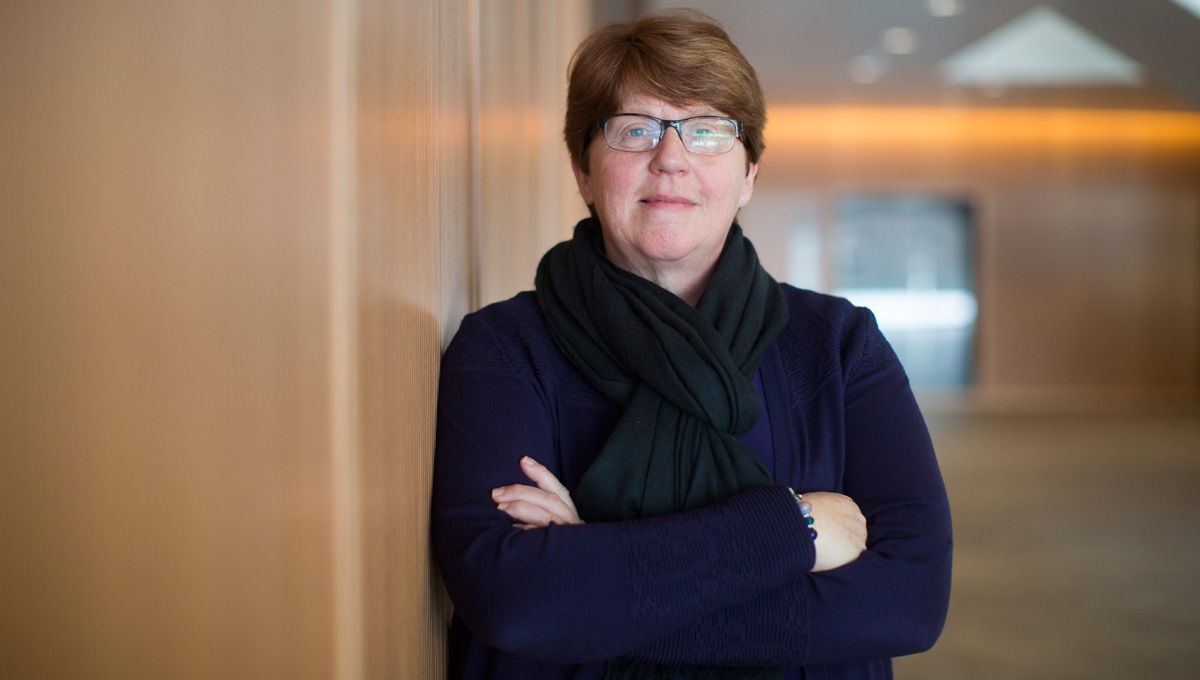
“Canada has a lot of expertise we can export, and there is demand in India,” says Sharma. “The centre can conduct research to look at what opportunities exist, and whether there are specific projects we can start piloting in India. Our niche is bringing everybody together.”
“There are very few entities in Canadian universities that are actively seeking opportunities in India,” says Rankin.
“Universities are increasingly recognizing the need to target specific partners globally. Harry’s combination of direct experience with India and professional expertise have put the Canada-India Centre at the tipping point where it can now realize its goals.”
Universities are also trying to figure out the best way forward on internationalization, adds Rankin, and Carleton’s recent benchmarking report on internationalization identified the need for a more co-ordinated approach, which meshes with the centre’s efforts.
In addition to potential research collaborations such as Örmeci’s water supply and sanitation work, the centre can help Canadian small- and medium-sized enterprises (SMEs) become integrated into the Indian market. It is working with Carleton’s Lead to Win business incubator to partner with a group of incubators in India (run by the Indian Institute of Management) to help Canadian firms get a foot on the ground with office space and mentorship opportunities.
This will help domestic SMEs figure out what Indian investors and buyers are looking for, and make it easier to tailor their products and services to meet that market.
InteractiveStudios Inc., a digital directory company run out of the Carleton Accelerator by Technology Innovation Management graduate students, Patrick Millward and Colin Pritchard, expects to receive funding from the Ontario Centres of Excellence’s Global Start program to spend five months at a business accelerator in Hong Kong this summer.
While there, Pritchard, the COO, intends to go on a trade mission to India. InteractiveStudios directories could be a great fit in the dozens of new shopping centres being built in India — they’ve been piloted at the Rideau Centre in Ottawa — and after discussions with Sharma, Pritchard has a line on meetings with Indian mall owners.
“Lots of new modern shopping centres are popping up in their new modern cities,” says Pritchard. “India is also a hub for software development, and the Canada-India Centre can help us get into engineering schools to meet with computer programmers who we could work with down the road.”
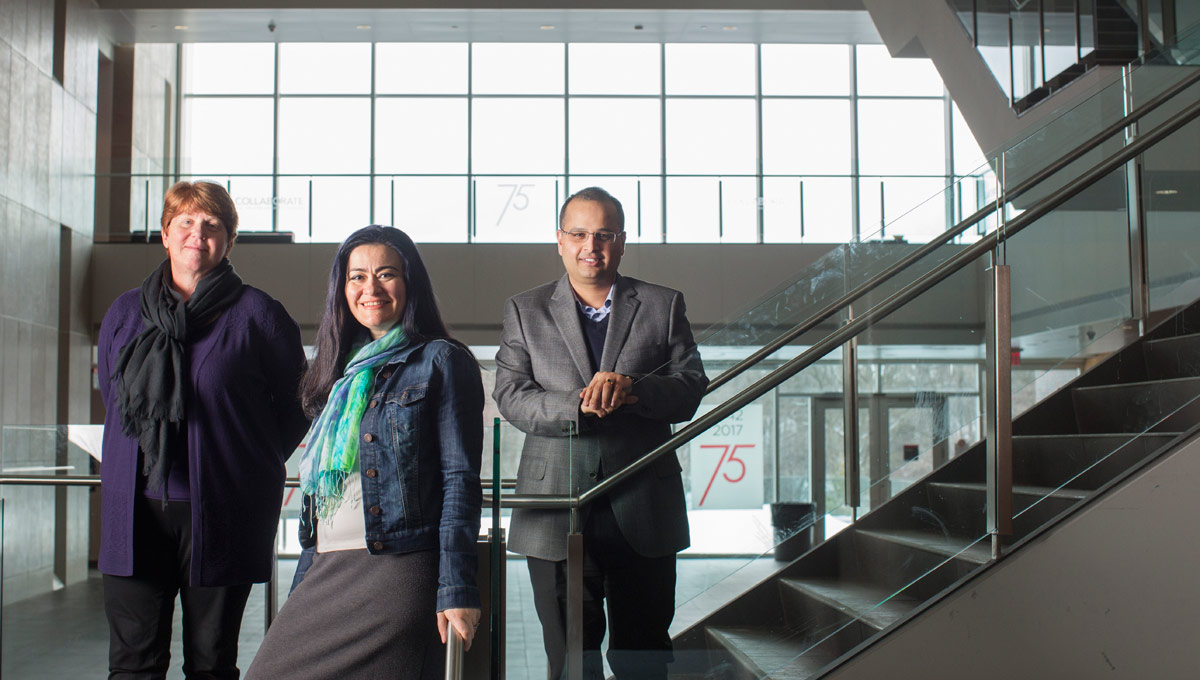
“India is very open to adopting new technologies,” says Sharma, highlighting the country’s interest in e-banking and e-governance. “We’re creating a platform for Canadian tech companies to enter the market at an early stage, before other countries get there. We want Canadian companies to have a head start and get a first-mover advantage in India’s knowledge economy.”
To help traverse the cultural gap between the two countries, the Canada-India Centre is tapping into the expertise of Carleton’s Global Academy, which can train and prepare researchers and businesspeople who are interested in working in India.
And the centre has partnered with non-profit innovation champion Mitacs on a program that will send up to 15 Carleton students on exchange to one of seven Indian Institutes of Technology campuses this summer.
The Canada-India Centre opened in 2011 after a series of conversations between Carleton, the Ottawa-based High Commission of India, and members of the Indo-Canadian business community. Carleton President Roseann O’Reilly Runte believes that both Canada and the university could collaborate more with India, and that Ottawa could be an important hub in this relationship, drawing on the expertise and experience of Carleton faculty members with an interest in India.
The centre organizes regular events, partners with other Canadian institutions, and hosts visiting scholars such as Prof. Pragati Sahni from Delhi University, who is currently teaching a pair of courses for Carleton’s Department of Philosophy.
It also created the Canada-India Research and Innovation Network (CIRIN) to bring together established and emerging researchers to improve the quality and number of research collaborations involving researchers at Canadian and Indian academic institutions. It will launch a bi-monthly online publication in fall 2016 to raise awareness of pressing issues among decision-makers and policy leaders.
“As a small country, the more we share and pool our resources,” says Sharma, “the more successfully we will be able to work in India.”
Tuesday, March 1, 2016 in Engineering, International, Research
Share: Twitter, Facebook


